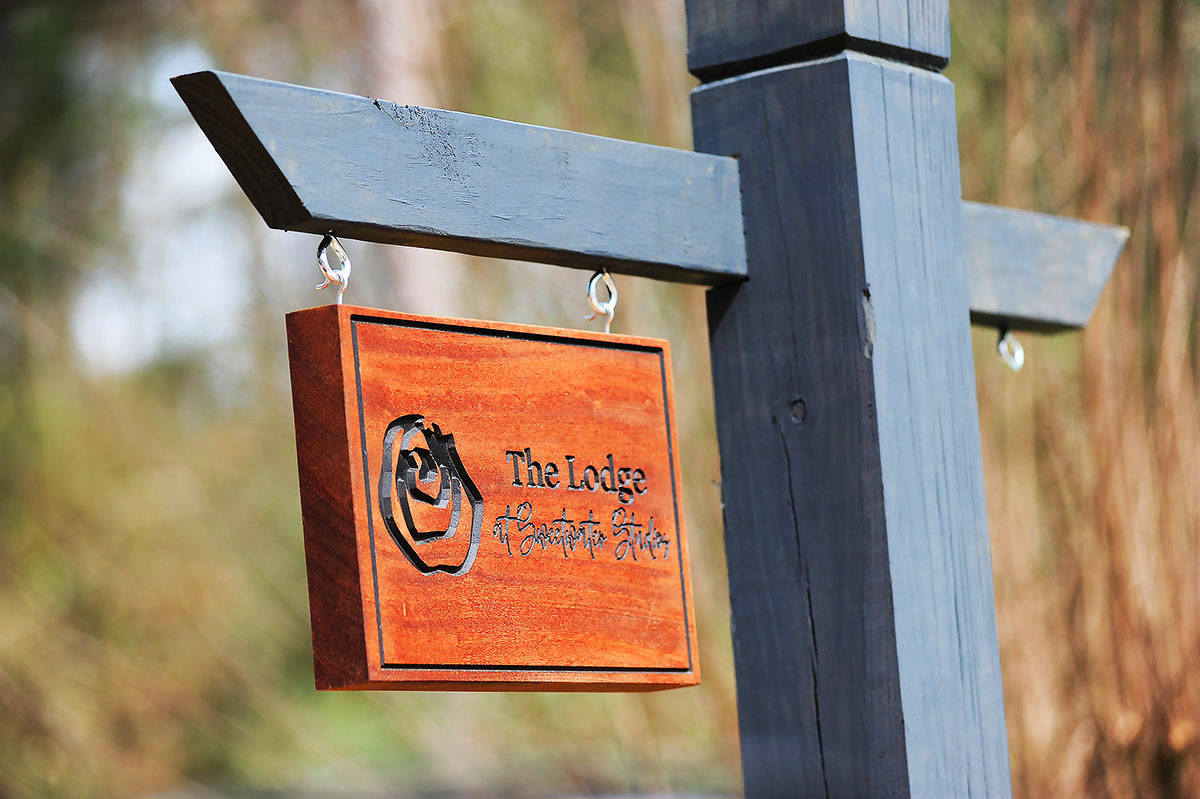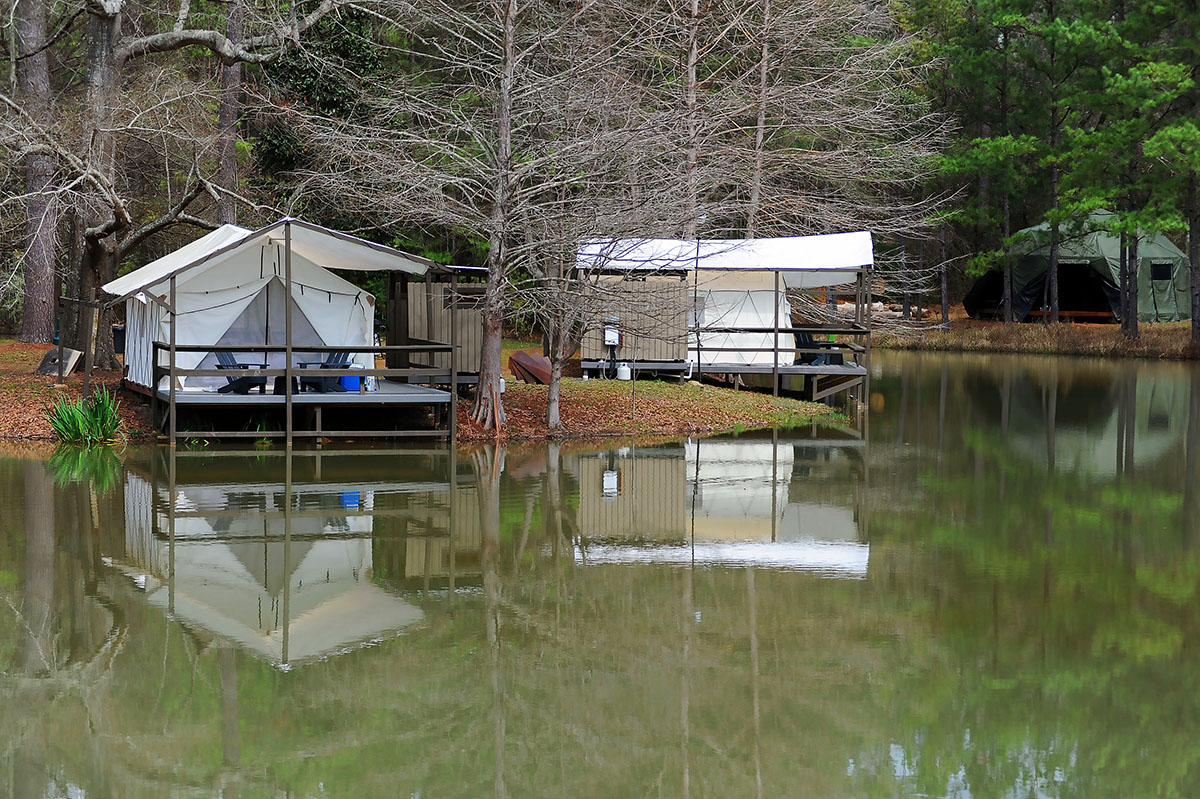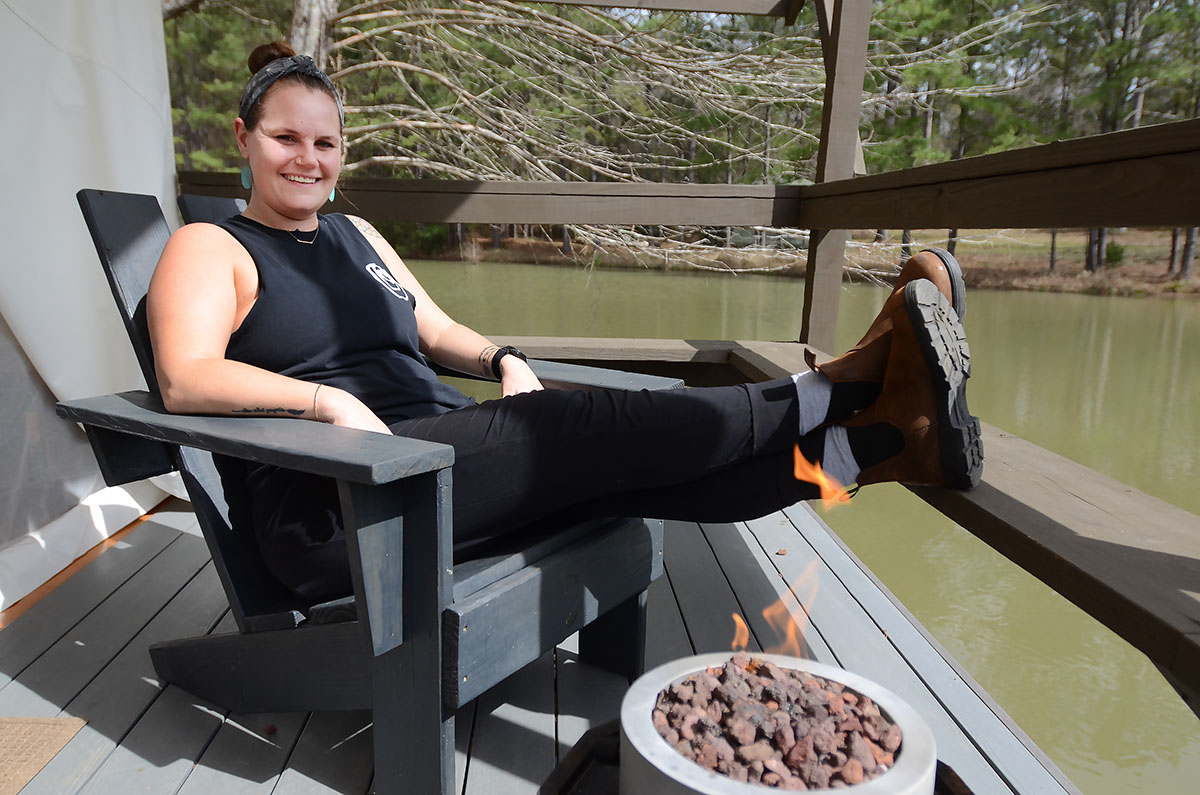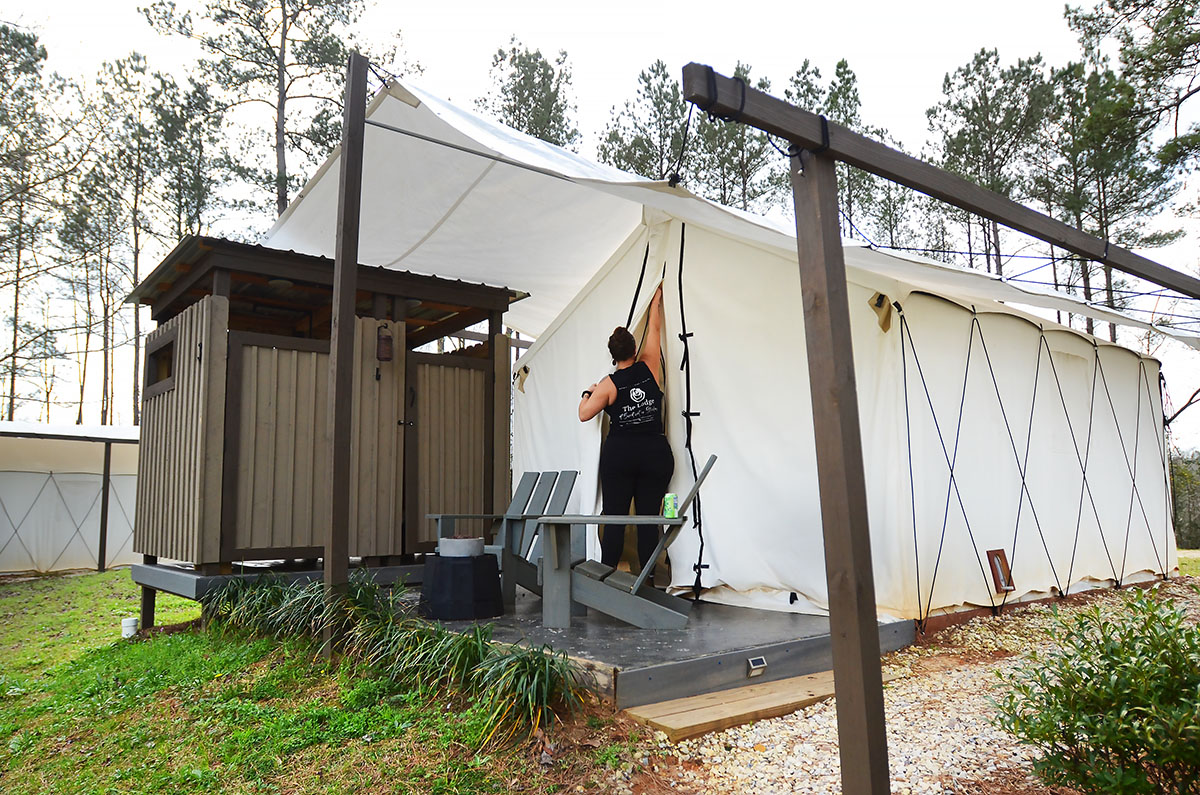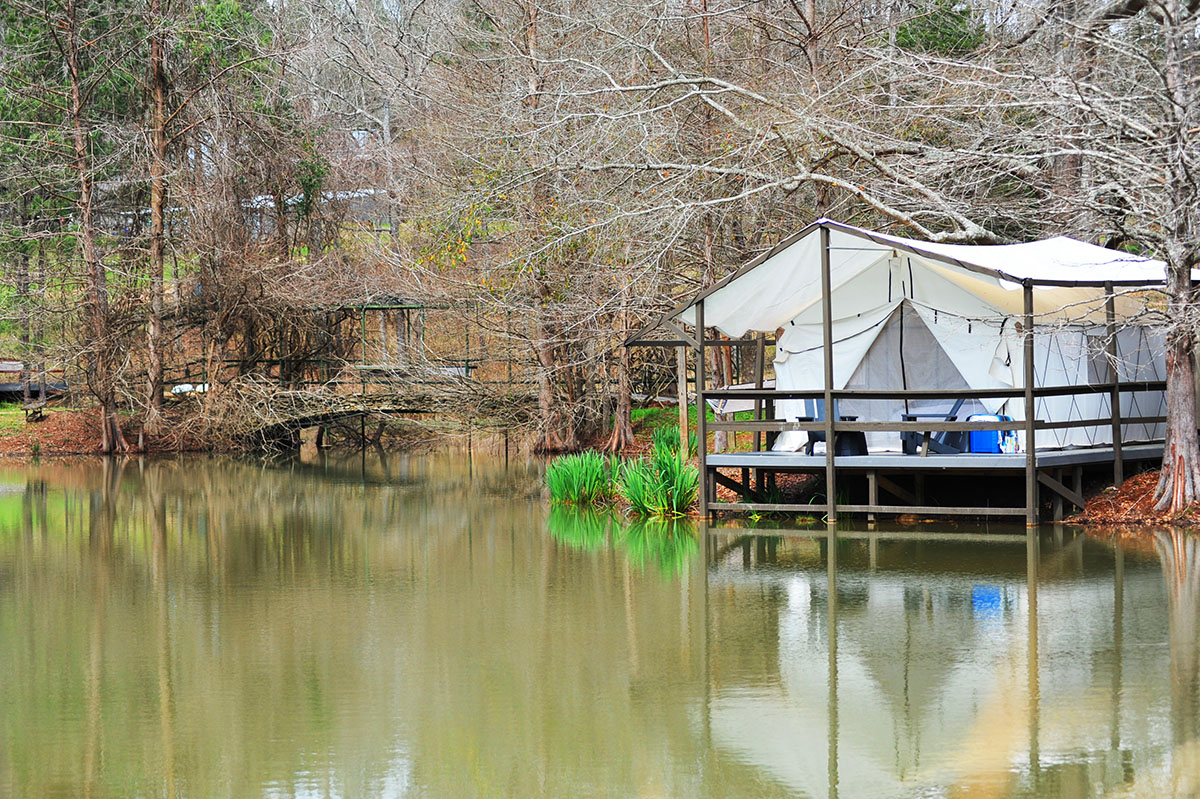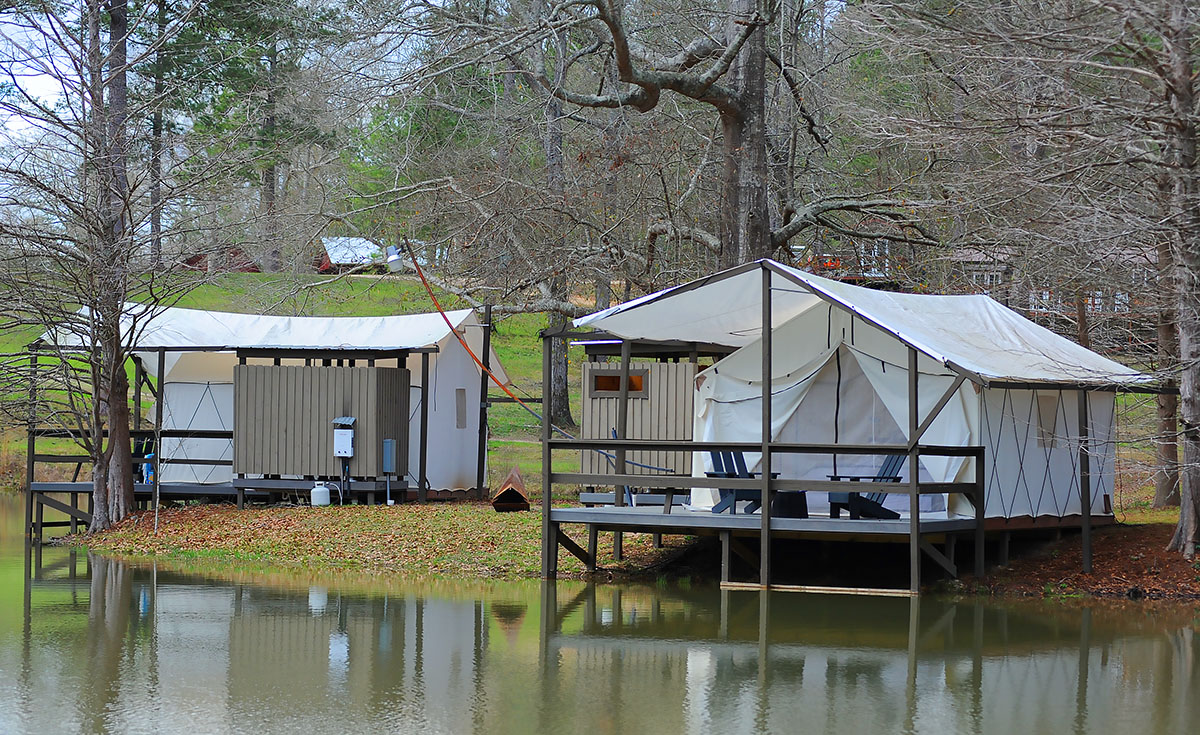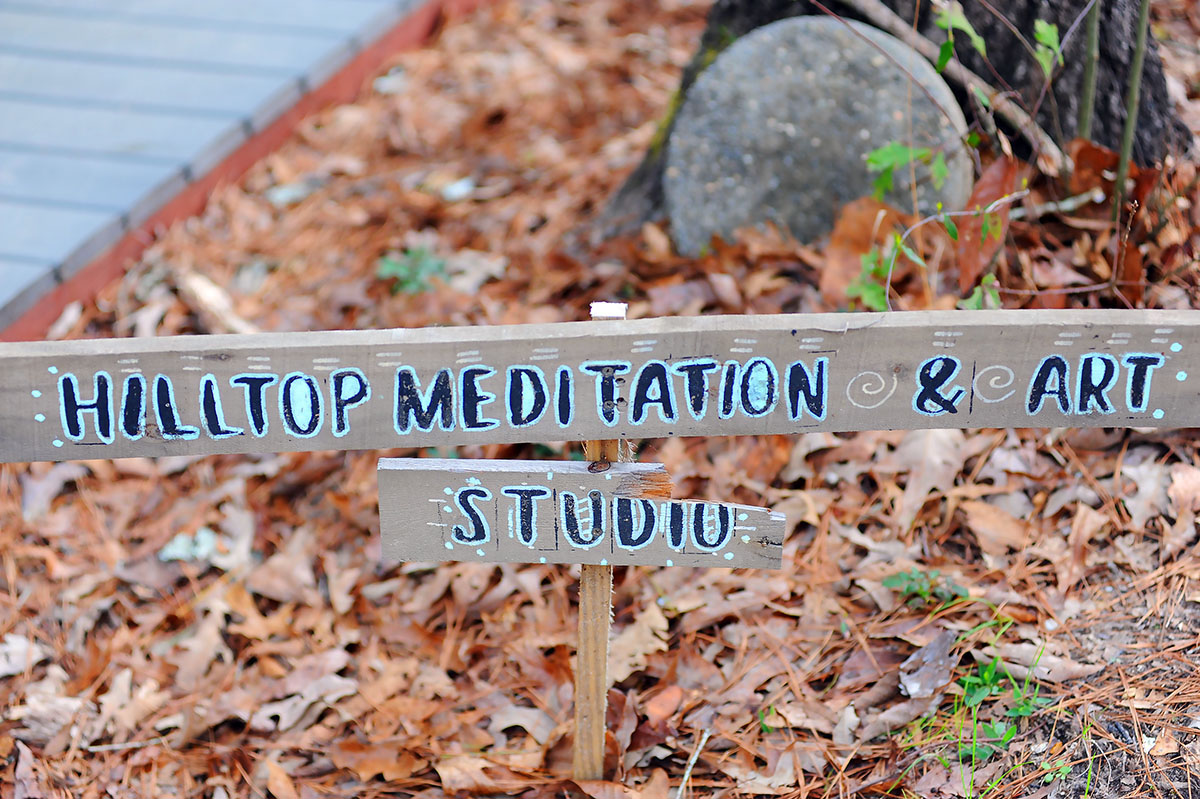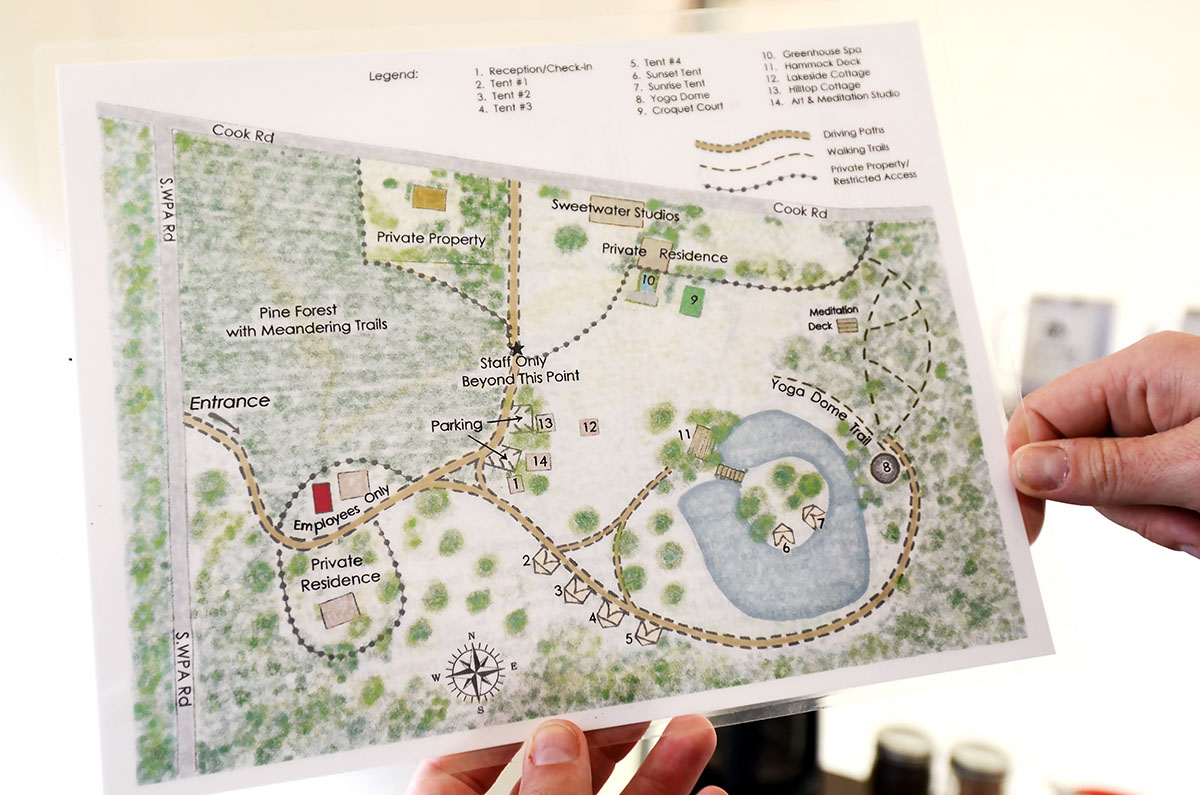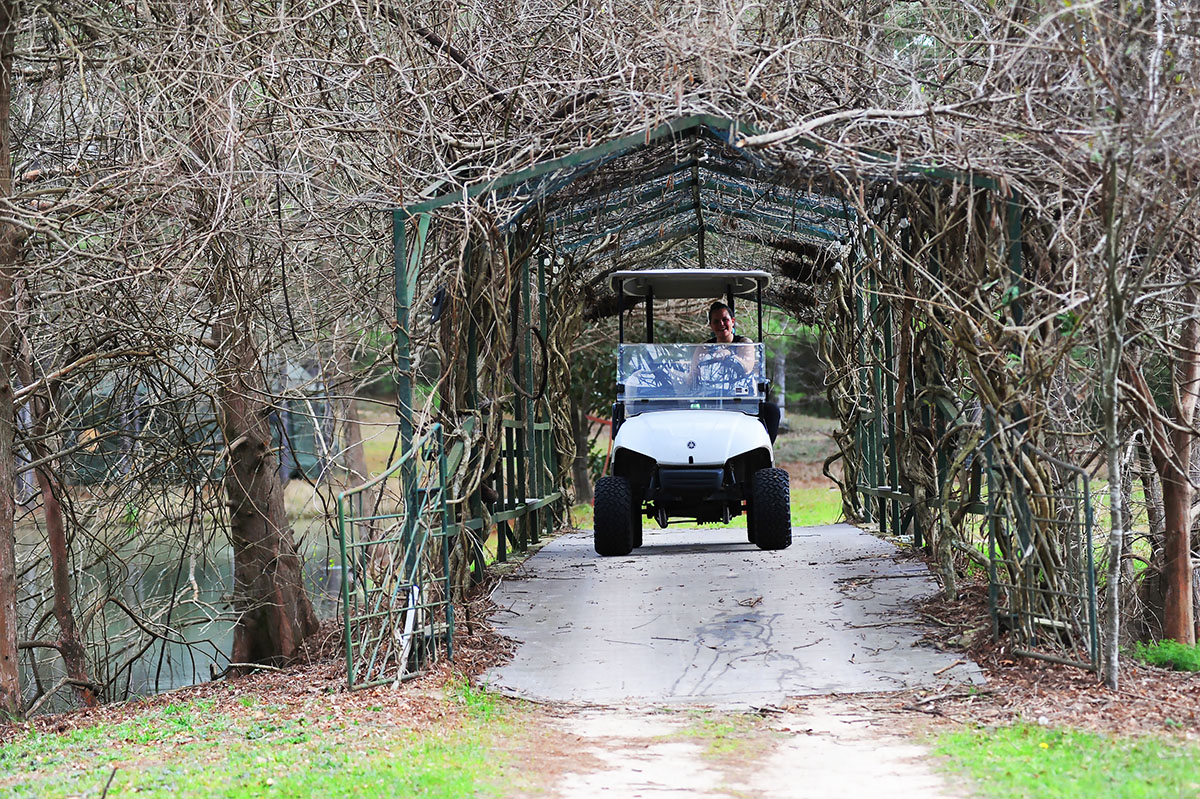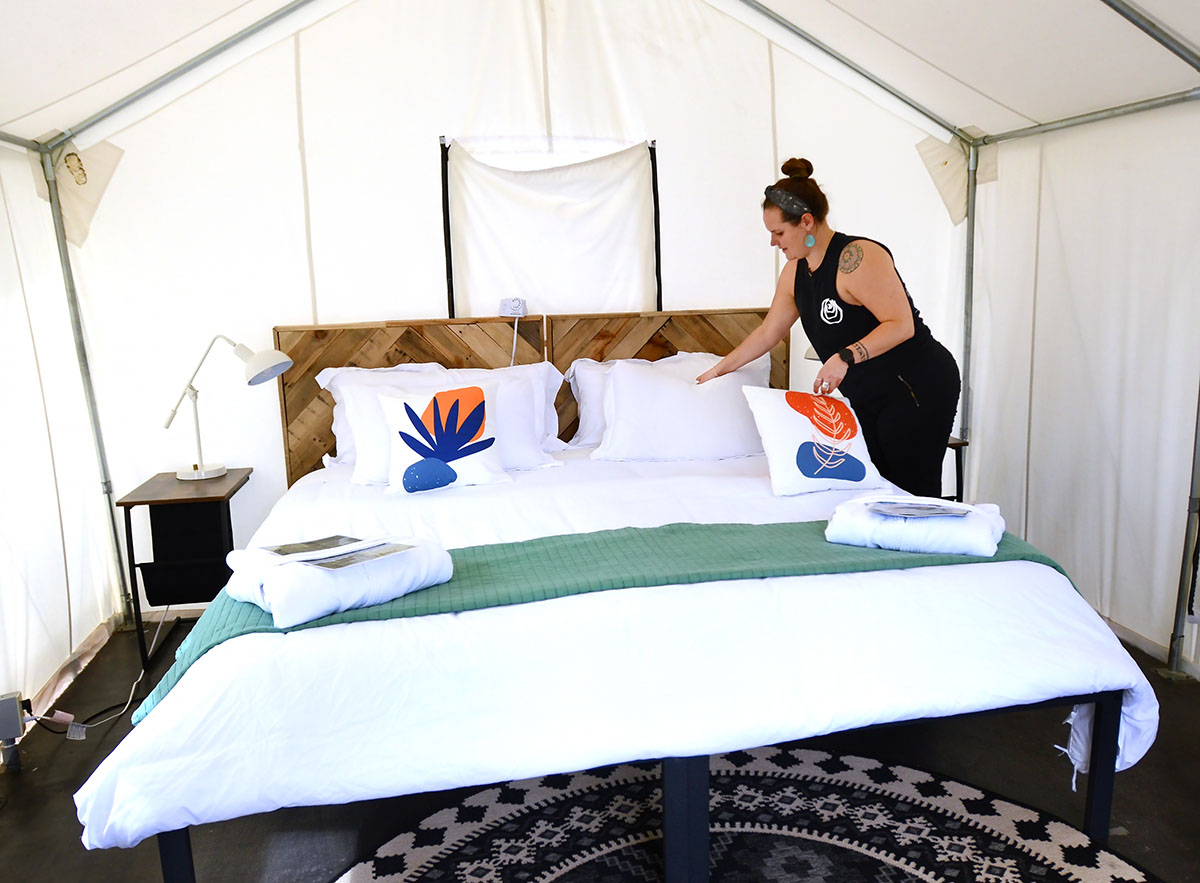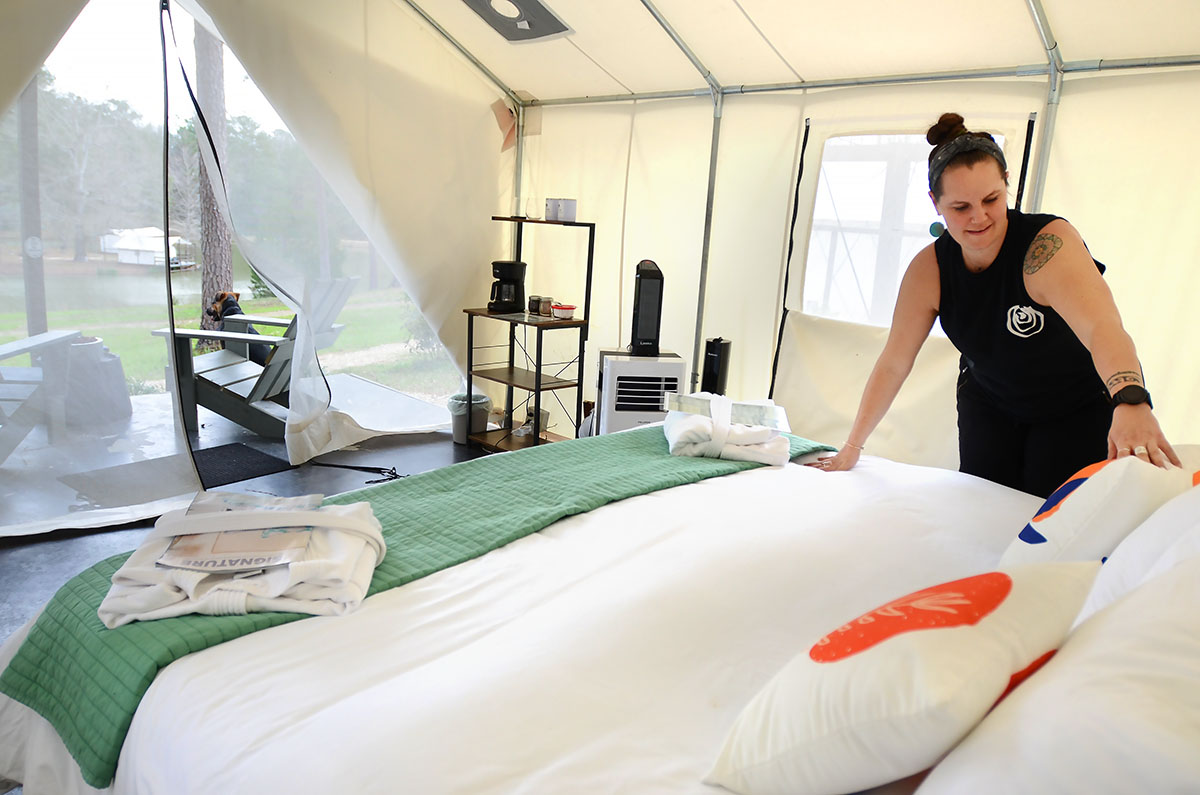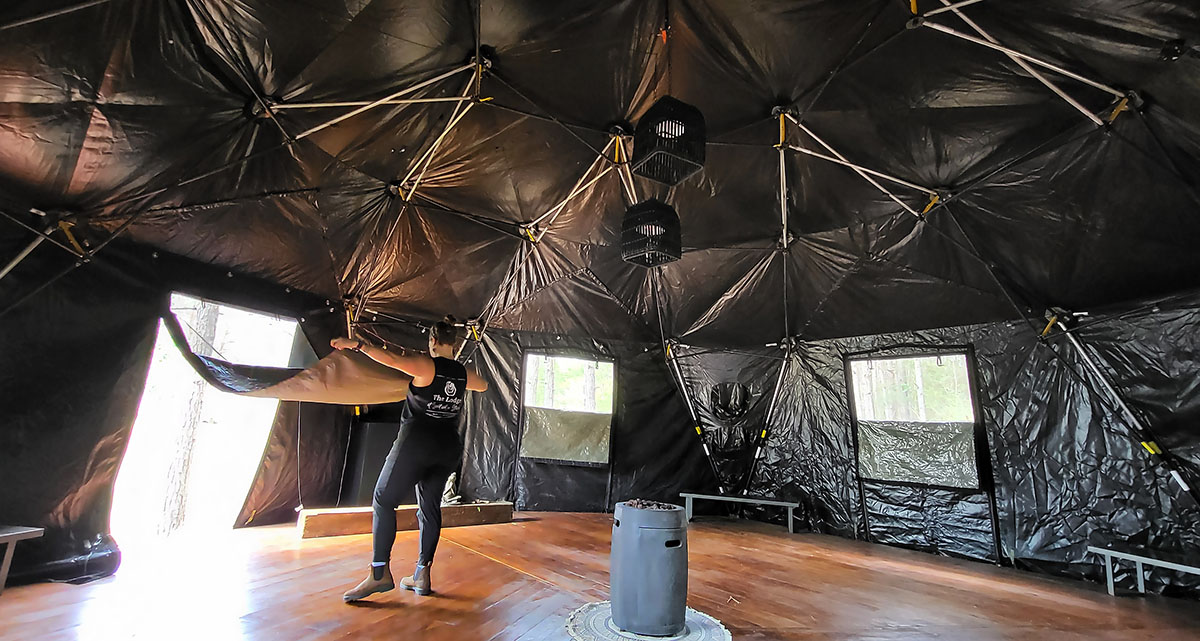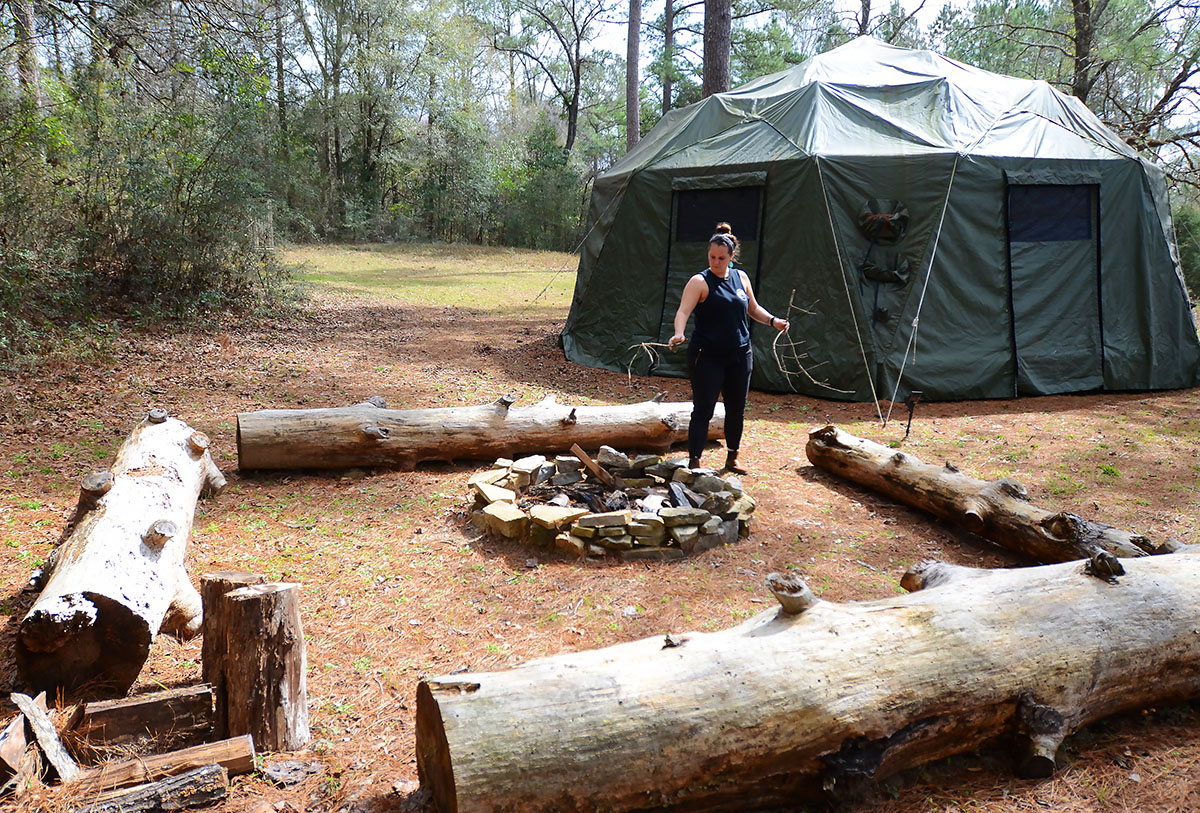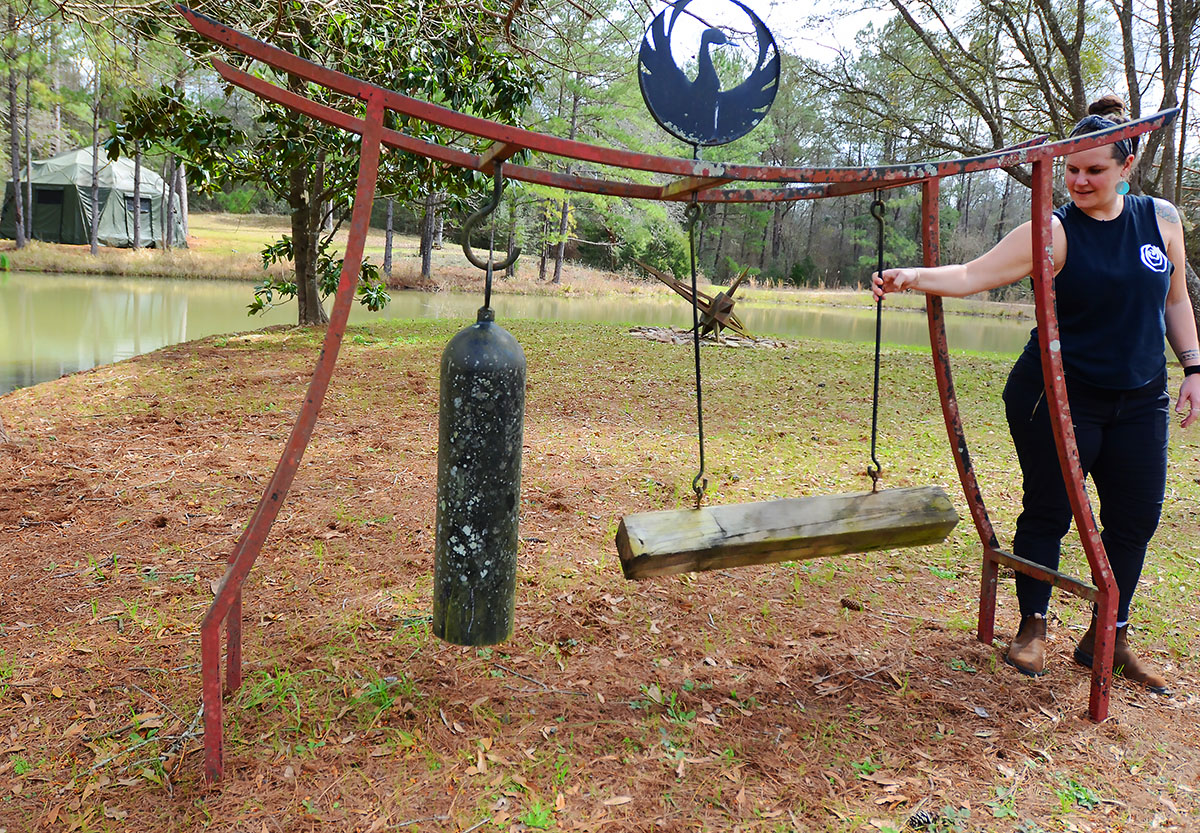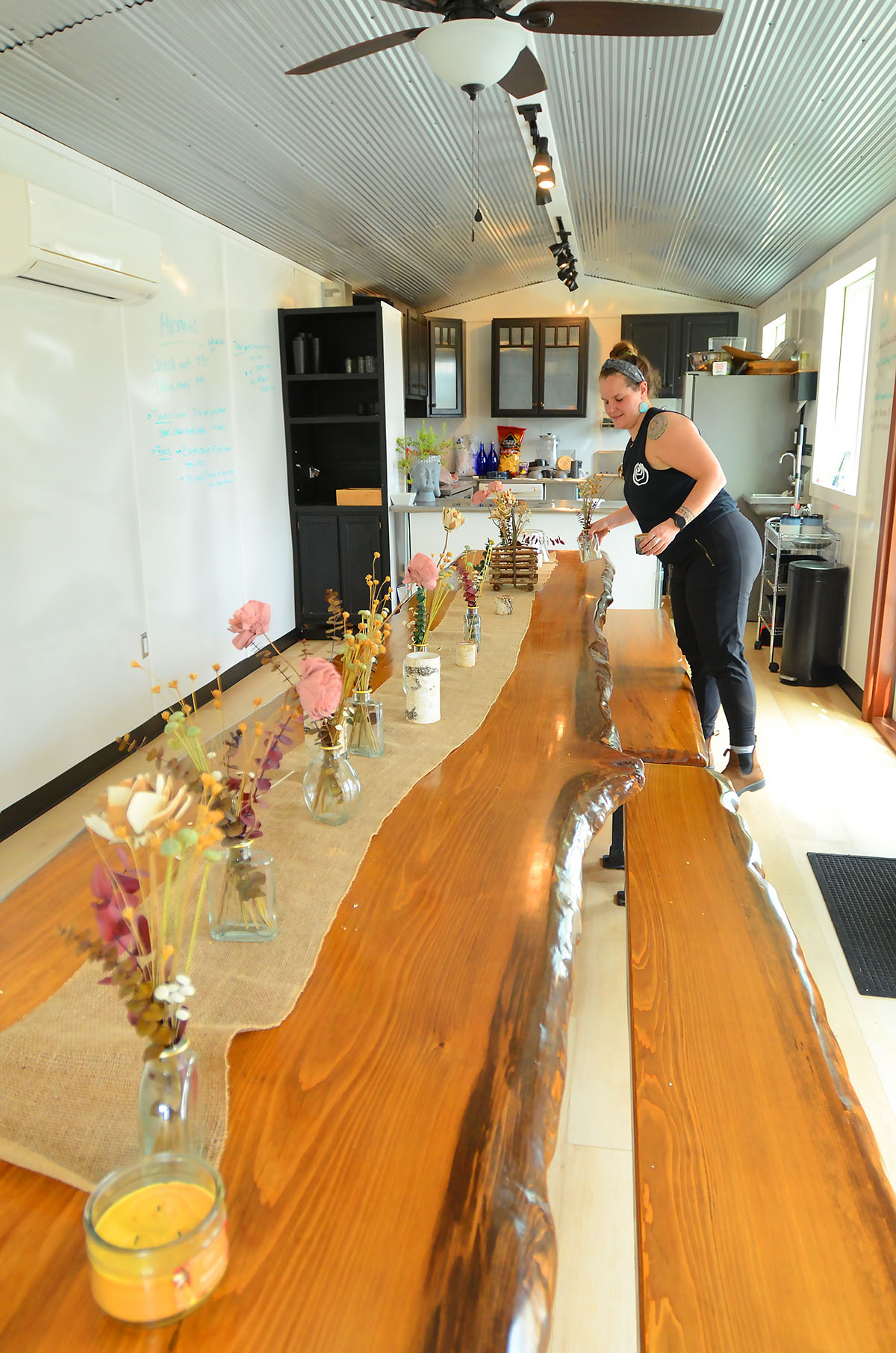Mississippi Today
Photo essay: The Lodge at Stillwater Studios
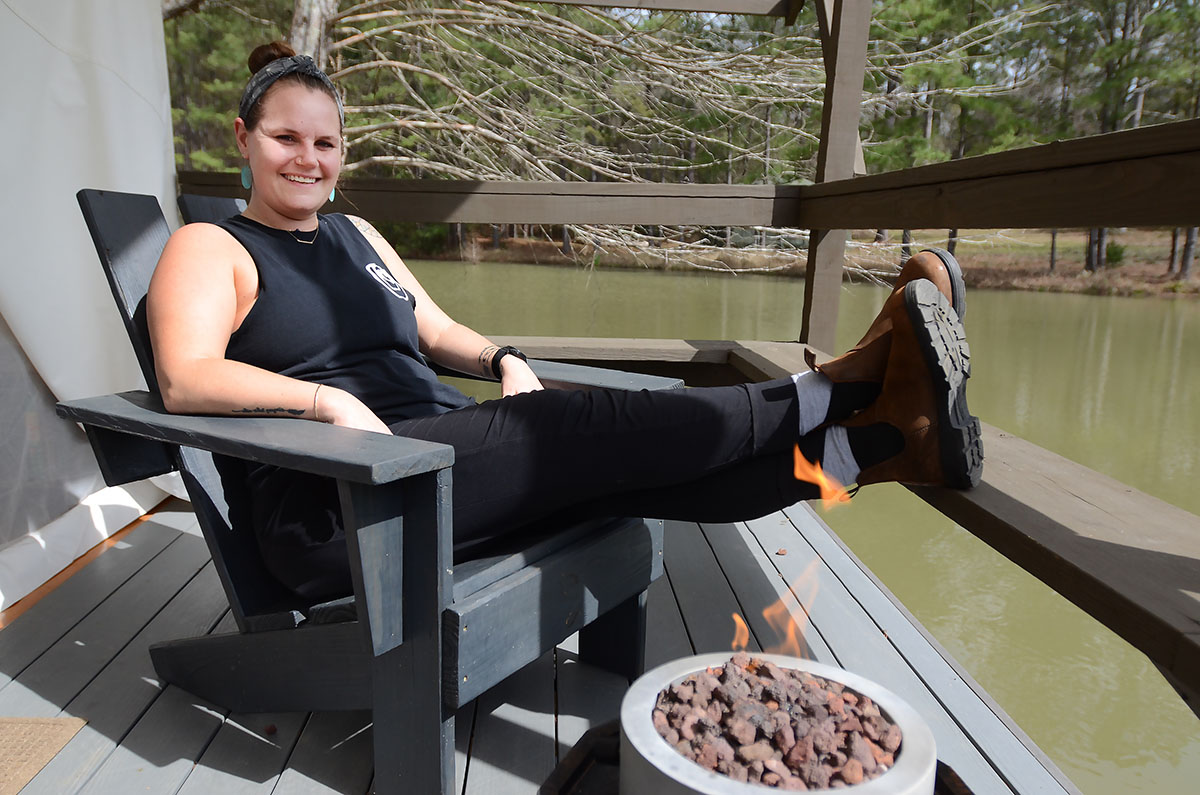

Photo essay: The Lodge at Stillwater Studios
Y’all remember the old 1970s Three Dog Night hit, “Out in the Country”? No?
Find it and give it a listen.
The song is a whimsical homage to needing space when life starts closing in. Sometimes you just need to get away. Take the road less traveled. All roads lead to somewhere. That kind of thing.
And the place to do that is The Lodge in Moselle, a get-away with safari-like tents and cottages equipped with all the comforts of home.
With theme music firmly in your head, pack a few essentials, get in your vehicle and, if leaving the Jackson metro area, hit U.S. 49 South. Keep going until you get to Collins and hook a left on Mississippi 588.
Keep going.
Enjoy the pastoral beauty of the boonies. Moo at cows and grin at your own silliness. Breathe.
Mississippi 588 becomes Moselle-Seminary Road, which becomes Mississippi 11 South. You’ll take a few more rights and a handful of lefts on a two-lane blacktop, but keep going. Trust your GPS. You lose cellphone service, but so what, that’s kind of the point.
That last turn really does put you on S w P A Road in Moselle.
You have arrived.
There’s a cute little signpost welcoming you to The Lodge at Sweetwater Studios.
Owner and operator Airon Whitt will motor out on her golf cart to greet you. It’s quite possible her two dogsDiego and Dora will greet you, too. They’re good ambassadors for where you’ll be kicking back. Both were strays and decided to stay. Don’t be surprised if the same ideas whisper to you.
Once you’ve stretched your legs and loosen up from the drive, have a listen.
Do you hear it?
That’s right. No traffic. No cellphones or televisions.
Take a deep, deep breath. Soak in the peacefulness of rustic overload — birds chirping, tree leaves rustling from a soft breeze wafting through the surrounding woods of the 26-acre property.
You’ll notice Airon waiting patiently while you soak it all in, smiling at you and the “knowing” you’ve just acquired.
“My parents are artists who traveled, honed their crafts and helped out in the communities where we lived when I was a kid. I can remember us staying in these huge tents that I thought were so cool. I told myself, I’ll have tents just like that one day. That’s the beauty of the internet. I found the exact same tents and here they are,” Whitt said, as she tidied up the sleeping area in one of the tents.
“I worked in the tourism and travel industry, in hotels and restaurants for over 15 years. I learned so much, and I discovered just how much I loved it,” Whitt said, as she vented the huge 31-foot, domed yoga tent. “That planted a few seeds, you know. I knew I wanted to live my dream of owning my own get-a-way space, hotel, something like that someday.”
“I had one of the best jobs ever… spending summers traveling the world with teenagers to places like Panama, Guatemala, Thailand, Ghana, Cambodia and Morocco. Then COVID hit.I found myself wondering just what I was going to do. It forced me to move back here. But out of that nightmare, my dream took shape. The Lodge at Sweetwater Studios was born,” Whitt said with admiration.
Yes, for the glammer-camper in you, there are private bathrooms, hot water, rainfall showers and heated blankets. Other amenities include bathrobes, beds with memory foam mattresses, heat, air conditioning, coffee makers and wine glasses. Contemplate life out on the deck and enjoy the firepit, sunrises or sunsets, your choice.
There’s a 3-acre lake and pedal boats. Work out your kinks in the 31-foot yoga tent. An art studio is available for instructor workshops. Birdwatch while hiking the nature trails in the surrounding woods.
Whitt’s father built a 5,250-foot croquet lawn, as well as a greenhouse filled with tropical plants, many grown from Airon’s unique finds from the places she visited. There’s also an 8-foot deep pool, a spa and sauna.
Whitt invites one and all to come as a group or come alone to take a load off. Relax, meditate, explore… oh, and play croquet.
Help us feature businesses in Mississippi owned by women:
(function (c, i, t, y, z, e, n, x) { x = c.createElement(y), n = c.getElementsByTagName(y)[0]; x.async = 1; x.src = t; n.parentNode.insertBefore(x, n); })(document, window, “//publicinput.com/Link?embedId=17671”, “script”);
View photo galleries of businesses owned by women and people of color.
This article first appeared on Mississippi Today and is republished here under a Creative Commons license.
Did you miss our previous article…
https://www.biloxinewsevents.com/on-this-day-in-1974/
Mississippi Today
On this day in 1947, Jackie Robinson broke MLB color barrier

April 15, 1947

Jackie Robinson broke through the color barrier in Major League Baseball, becoming the first Black player in the 20th century.
Born in Cairo, Georgia, Robinson lettered in four sports at UCLA – football, basketball, baseball and track. After time in the military, he played for the Kansas City Monarchs in the Negro Leagues. After his success there, Dodgers general manager Branch Rickey signed Robinson, and the legendary baseball player started for Montreal, where he integrated the International League.
In addition to his Hall of Fame career, he was active in the civil rights movement and became the first Black TV analyst in Major League Baseball and the first Black vice president of a major American corporation.
In recognition of his achievements, Robinson was posthumously awarded the Presidential Medal of Freedom and the Congressional Gold Medal.
Major League Baseball retired his number “42,” which became the title of the movie about his breakthrough.
Ken Burns’ four-hour documentary reveals that Robinson did more than just break the color barrier — he became a leader for equal rights for all Americans.
This article first appeared on Mississippi Today and is republished here under a Creative Commons Attribution-NoDerivatives 4.0 International License.![]()
Mississippi Today
Mississippians highlight Black Maternal Health Week
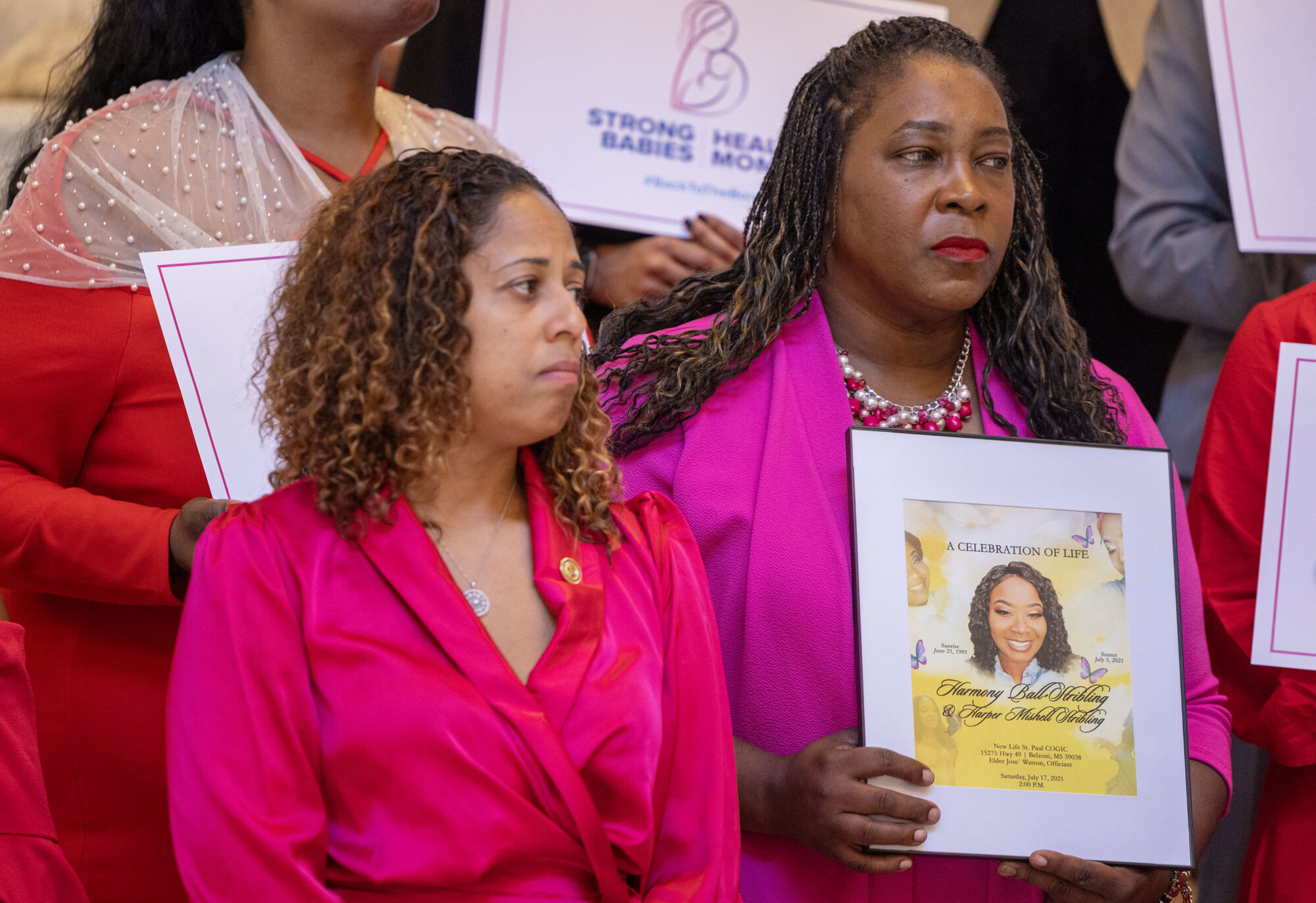
Advocates and health care leaders joined lawmakers Monday morning at the Capitol to recognize Black Maternal Health Week, which started Friday.
The group was highlighting the racial disparities that persist in the delivery room, with Black women three times more likely to die of a pregnancy-related cause than white women.
“The bond between a mother and her baby is worth protecting,” said Cassandra Welchlin, executive director of the Mississippi Black Women’s Roundtable.
Rep. Timaka James-Jones, D-Belzoni, spoke about her niece Harmony, who suffered from preeclampsia and died on the side of the road in 2021 along with her unborn baby, three miles from the closest hospital in Yazoo City.
“It’s utterly important that stories are shared – but realize these are not just stories. This is real life,” she said.
The tragedy inspired James-Jones to become a lawmaker. She says she is working on gaining support to appropriate the funds needed to build a standalone emergency room in Belzoni.
But it isn’t just emergency medical care that’s lacking for some mothers. Mental health conditions are a leading cause of pregnancy-related deaths, defined as deaths up to one year postpartum from associated causes.
And more than 80% of pregnancy-related deaths are deemed preventable – making the issue ripe for policy change, advocates said.
“About 20 years ago, I was almost a statistic,” said Lauren Jones, a mother who founded Mom.Me, a nonprofit seeking to normalize the struggles of motherhood through community support. “I contemplated taking my life, I severely suffered from postpartum depression … None of my physicians told me that the head is connected to the body while pregnant.”
With studies showing “mounting disparities” in women’s health across the United States – and Mississippi scoring among the worst overall – more action is needed to halt and reverse the inequities, those at the press conference said.
The Mississippi Legislature passed four bills related to maternal health between 2018 and 2023, according to a study by researchers at the University of Mississippi Medical Center.
“How many times are we going to have to come before committees like this to share the statistics before the statistics become a solution?” Jones asked.
A bill that would require health care providers to offer postpartum depression screenings to mothers is pending approval from the governor.
Rep. Zakiya Summers, D-Jackson, the organizer of the press conference, commended the Legislature for passing presumptive eligibility for pregnant women this year. The policy will allow women to receive health care covered by Medicaid as soon as they find out they are pregnant – even if their Medicaid application is still pending. It was spearheaded by Rep. Missy McGee, R-Hattiesburg.
Summers also thanked Rep. Kevin Felsher, R-Biloxi, for pushing paid parental leave for state employees through the finish line this year.
Speakers emphasized the importance of focusing Black Maternal Health Week not just on mitigating deaths but on celebrating one of life’s most vulnerable and meaningful events.
“Black Maternal Health Week is a celebration of life, since Black women don’t often get those opportunities to celebrate,” said Nakeitra Burse, executive director of Six Dimensions, a minority women-owned public health research agency. “We go into our labor and delivery and pregnancy with fear – of the unknown, fear of how we’ll be taken care of, and just overall uncertainty about the outcomes.”
This article first appeared on Mississippi Today and is republished here under a Creative Commons Attribution-NoDerivatives 4.0 International License.![]()
Mississippi Today
Trump to appoint two Northern District MS judges after Aycock takes senior status

President Donald Trump can now appoint two new judges to the federal bench in the Northern District of Mississippi.
U.S. District Judge Sharion Aycock announced recently that she was taking senior status effective April 15. This means she will still hear cases as a judge but will have a reduced caseload.
“I have been so fortunate during my entire legal career,” Aycock said in a statement. “As one of only a few women graduating in my law school class, I had the chance to break ground for the female practitioner.”
A native of Itawamba County, Aycock graduated from Tremont High School and Mississippi State University. She received her law degree from Mississippi College, where she graduated second in her class.
Throughout her legal career, she blazed many trails for women practicing law and female jurists. She began her career as a judge when she was elected as a Mississippi Circuit Court judge in northeast Mississippi in 2002, the first woman ever elected to that judicial district.
She held that position until President George W. Bush in 2007 appointed her to the federal bench. After the U.S. Senate unanimously confirmed her, she became the first woman confirmed to the federal judiciary in Mississippi.
This makes Aycock the second judge to take senior status in four years. U.S. District Judge Michael Mills announced in 2021 that he was taking senior status, but the U.S. Senate still has not confirmed someone to replace him.
President Joe Biden appointed state prosecutor Scott Colom to fill Mills’ vacancy in 2023. U.S. Sen. Roger Wicker approved Colom’s appointment, but U.S. Sen. Cindy Hyde-Smith blocked his confirmation through a practice known as “blue slips,” where senators can block the confirmation of judicial appointees in their home state.
This means President Trump will now have the opportunity to appoint two federal judges to lifetime appointments to the Northern District. U.S. District Judge Debra Brown will soon be the only active federal judge serving in the district. Aycock, Mills, and U.S. District Judge Glen Davidson will all be senior-status judges.
Federal district judges provide crucial work to the federal courts through presiding over major criminal and civil trials and applying rulings from the U.S. Supreme Court and the U.S. Court of Appeals in the local districts.
This article first appeared on Mississippi Today and is republished here under a Creative Commons Attribution-NoDerivatives 4.0 International License.![]()
-

 News from the South - Arkansas News Feed6 days ago
News from the South - Arkansas News Feed6 days agoMeasles cases confirmed in Arkansas children after travel exposure
-

 Mississippi Today6 days ago
Mississippi Today6 days agoA self-proclaimed ‘loose electron’ journeys through Jackson’s political class
-

 News from the South - Alabama News Feed6 days ago
News from the South - Alabama News Feed6 days agoImpacts of Overdraft Fees | April 11, 2025 | News 19 at 10 p.m.
-

 News from the South - Missouri News Feed7 days ago
News from the South - Missouri News Feed7 days agoSleeping 14-year-old critically injured by bullet in Ferguson home; father flees scene
-

 News from the South - Alabama News Feed7 days ago
News from the South - Alabama News Feed7 days agoPilot Speaks on Helicopter Crash | April 10, 2025 | News 19 at 10 p.m.
-

 News from the South - Kentucky News Feed7 days ago
News from the South - Kentucky News Feed7 days agoWLKY Investigates: Judge calls decision not to renew Baxter 942’s liquor license ‘unreasonable’
-

 News from the South - Georgia News Feed6 days ago
News from the South - Georgia News Feed6 days ago1-on-1 with Gov. Kemp’s Senior Advisor | Full interview
-

 Local News5 days ago
Local News5 days agoAG Fitch and Children’s Advocacy Centers of Mississippi Announce Statewide Protocol for Child Abuse Response
